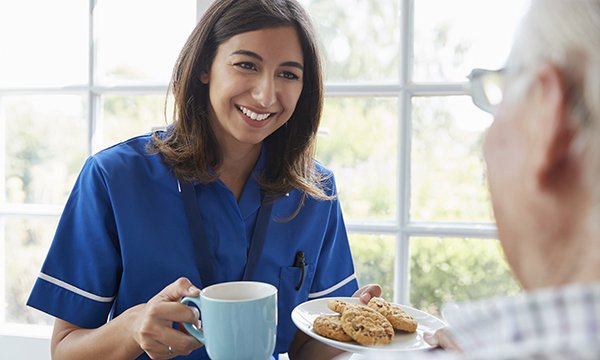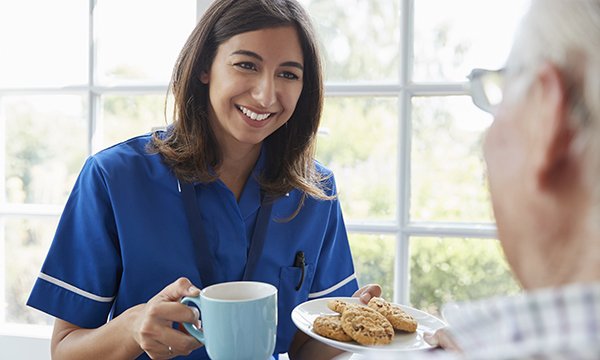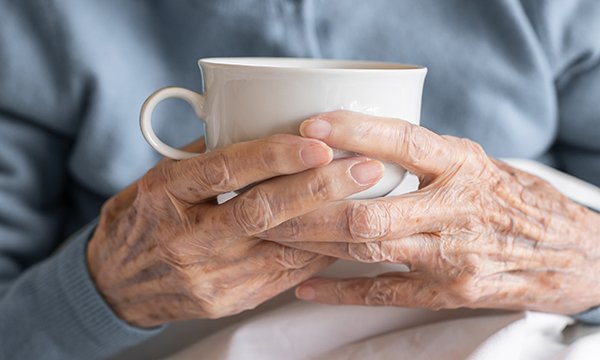Nurse-led work to cut caffeine helps reduce care home falls

Reduction in toileting-related falls credited to use of decaffeinated drinks, shown to reduce urgency in those with an overactive bladder or incontinence

A care home provider has reduced falls by adopting a nurse-led initiative on decaffeinated drinks.
Toileting-related falls were reduced by 35% at eight care homes run by Stow Healthcare following the introduction of the scheme, which involved offering residents caffeine-free tea and coffee over a six-month trial.
The approach was the brainchild of Sarah Coombes, a continence nurse specialist at University Hospitals of Leicester NHS Trust.
She and colleagues started a trial of caffeine-free hot drinks across the trust's three hospitals in 2021. Decaffeinated drinks have been shown to reduce bladder and bowel urgency in those with an overactive bladder or incontinence.
Many patients could not tell the difference between caffeinated and decaf drinks
‘As a continence nurse, the first line of conservative treatment for an overactive bladder is to switch to decaf or cut down your caffeine – it’s part of National Institute for Health and Care Excellence guidance,’ Ms Coombes explained to Nursing Standard.
‘I was looking at falls and harm-free care, and specifically falls relating to toileting, and I noticed housekeepers didn’t routinely offer decaffeinated drinks. I thought there was potentially a quick win or fix there.’

When taste tests showed many patients could not tell the difference between caffeinated and decaffeinated drinks, the trust switched to decaf as the default option. Patients can still request caffeinated drinks if they prefer them.
Ultimately the switch resulted in a 30% reduction in inpatient toileting-related falls after just three months.
The work at Stow Healthcare represents the first implementation of the approach in the care sector.
Report recommends wider use of decaf as default in health and care settings
Ms Coombes ran a webinar for colleagues in the sector and Stow Healthcare – which cares for 350 residents across facilities in East Anglia – became the first to trial caffeine-free hot drinks.
Its pilot ran from June to November 2023, and a report has now been published detailing the results. As well as the 35% overall drop in toileting-related falls, it shows these incidents as a proportion of total falls were reduced by 29%.
Decaffeination and Falls Prevention, jointly published by Care England, Stow Healthcare and University Hospitals of Leicester NHS Trust, recommends the wider use of decaffeinated drinks as the default option in health and care settings.
Ms Coombes – who created specialist resources for the Stow Healthcare work, including a recorded education session for care home staff – now hopes the approach will spread further still.
‘I hope others will buy into this and implement their own decaf trial,’ says Ms Coombes. ‘I hope it'll be like a snowball effect.’
In other news
